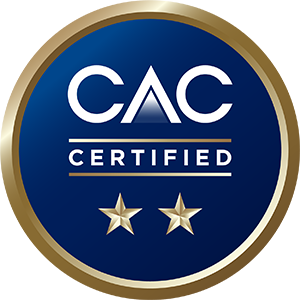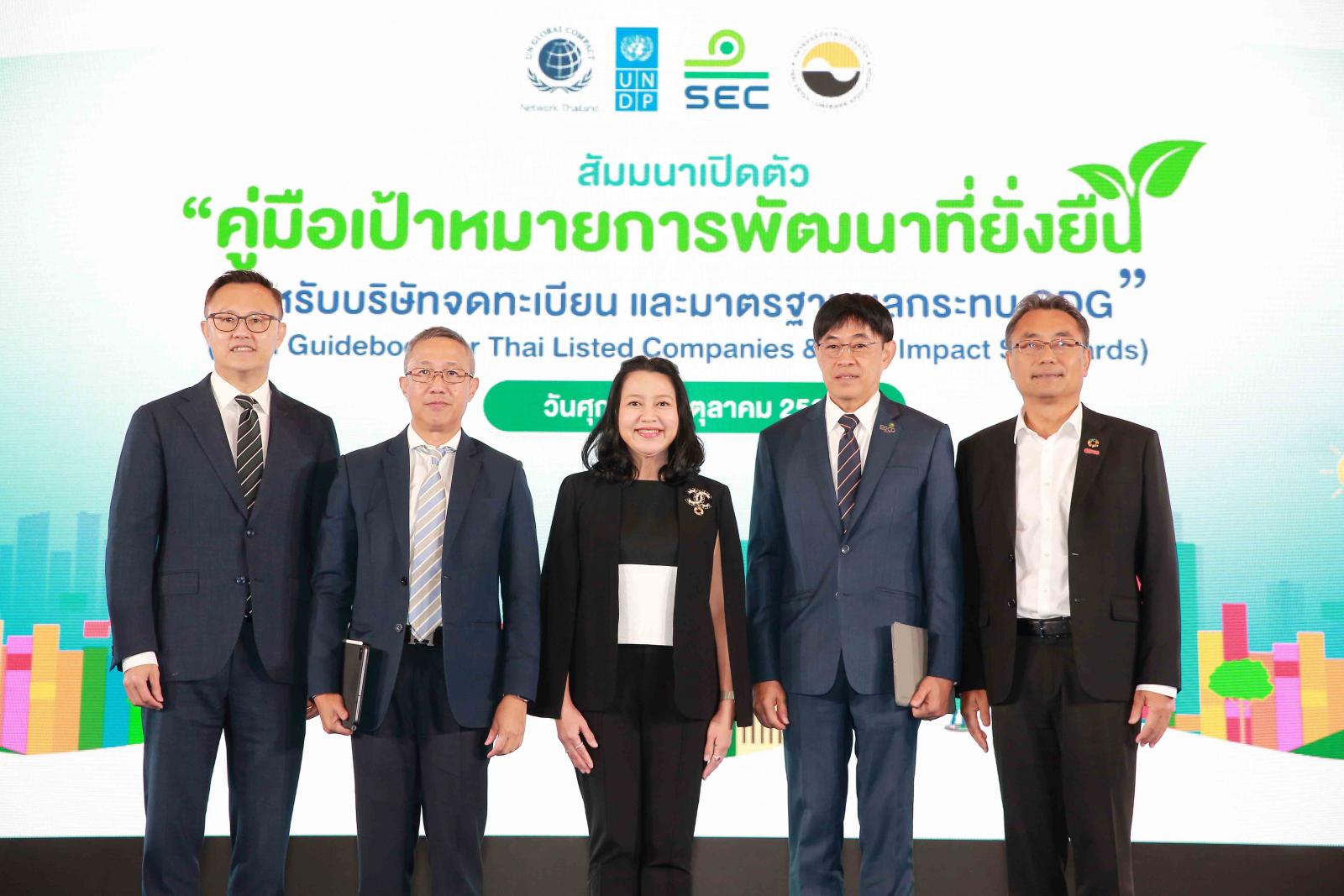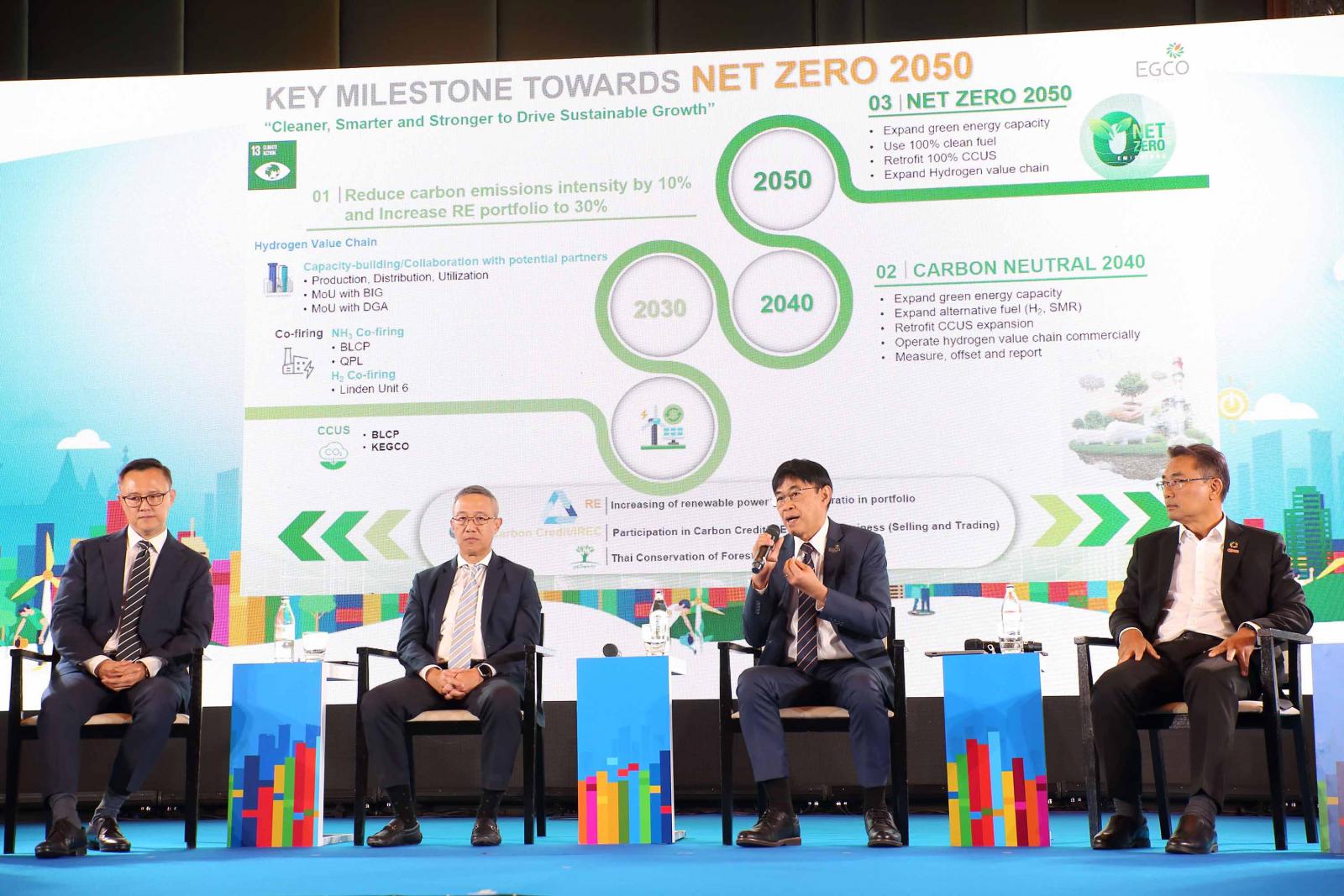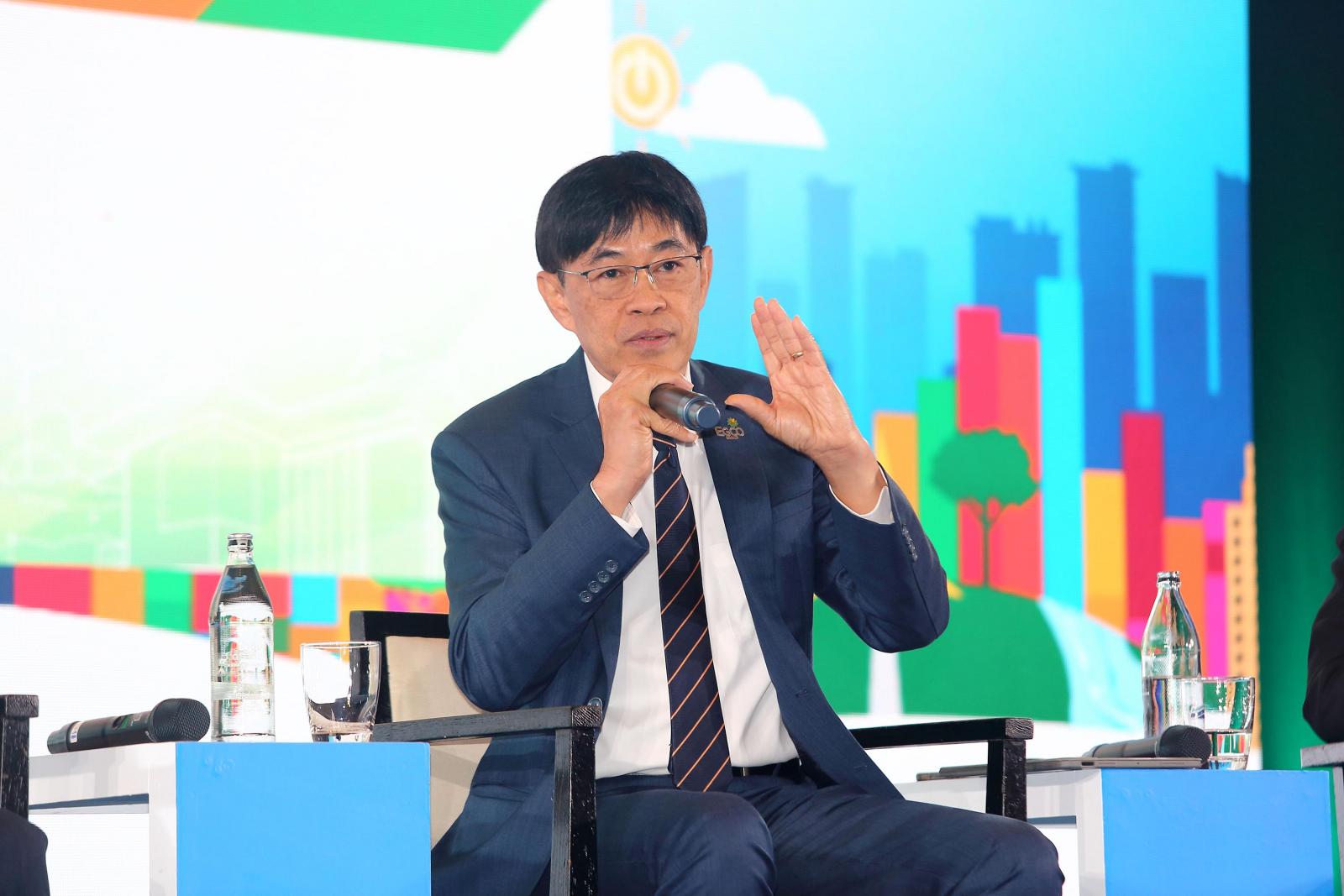EGCO Group shares experience on SDGs information disclosure in SEC’s seminar on launch of “SDG Guidebook”
Electricity Generating Public Company Limited or EGCO Group, represented by Mr. Thepparat Theppitak, the company’s President, recently shared experience and viewpoints to help friends in the business sector to successfully implement the United Nations’ Sustainability Development Goals (SDGs) and disclose such information in listed companies’ annual One Report in a standard way. EGCO Group also cited SDG13: Climate Action as the top priority issue for all sectors to address at the launch of the “SDG Guidebook for Listed Companies and SDG Impact Standards” seminar on the topic of “SDGs Information Disclosure in 56-1 One Report” held by the Securities and Exchange Commission of Thailand (SEC) at the Grand Hyatt Erawan Bangkok Hotel. Prime Minister and Minister of Finance Srettha Thavisin also graced the event and delivered a keynote speech.
Mr. Thepparat Theppitak, EGCO Group’s President, said that EGCO Group has been operating electricity generating and energy business for more than 31 years with commitment to good corporate governance, transparence, and accountability. The company has integrated the environmental, social, and corporate governance principle (ESG) throughout its operations. In the beginning the company delivered the CSR Report to disclose information about its community and social development activities in parallel with the Annual Registration Statement (Form 56-1) and Annual Report (Form 56-2) required by SEC. Later, the first Sustainability Report was prepared separately in 2018 and submitted together with the Annual Report. In 2020, the company voluntarily prepared One Report, one year before it became compulsory for all listed companies according to SEC’s regulations. The One Report covers sustainability information about the company’s endeavor to support and integrate UN’s 17 SDGs into its business operations. The One Report has been prepared in line with SEC’s regulations and international standards and guidelines, including GRI Standards and Integrated Reporting. The information disclosed in the One Report is reviewed and certified by external organization to ensure accuracy and trust among all stakeholders.
Among all 17 SDGs, EGCO Group has identified five as its top priorities, which are directly related to its core business activities. The five goals are SDG3: Health and Well-being; SDG7: Affordable and Clean Energy; SDG8: Decent Work and Economic Growth, SDG9: Industry, Innovation, and Infrastructure; and SDG13: Climate Action which is the mutual goal that all sectors view as top priority that needs immediate action. To address the climate issue, EGCO Group has announced the “Cleaner, Smarter, and Stronger to Drive Sustainable Growth” vision and the roadmap towards low-carbon society, including three phases as follows:
- Short-term goal by 2030: Reducing carbon dioxide emission intensity by 10% and increasing electricity from renewable sources to 30%
- Mid-term goal by 2040: Achieving carbon neutral
- Long-term goal by 2050: Achieving Net Zero
“The monitoring, assessment and disclosure of sustainability actions published in EGCO Group’s One Report concretely reflects our commitment to sustainable business operations. This not only increases confidence among investors and other stakeholders, but also enables us to evaluate our internal operations. Such information can also be used in other sustainability assessments, such as Dow Jones Sustainability Indices (DJSI) in which EGCO Group has been selected to be in this prestigious list for 3 consecutive years. The “SDG Guideline for Listed Companies and SDG Impact Standards” is a significant tool that enables the private sector to effectively achieve SDGs through measurement and management of impact of business operations on society and the environment. SDGs shall be integrated into decision making process, reporting, and internal management at all levels in order to reduce negative impact and increases positive effect on the society and the environment as much as possible. While doing all this, businesses can still achieve business and financial goals,” said Mr.Thepparat.




